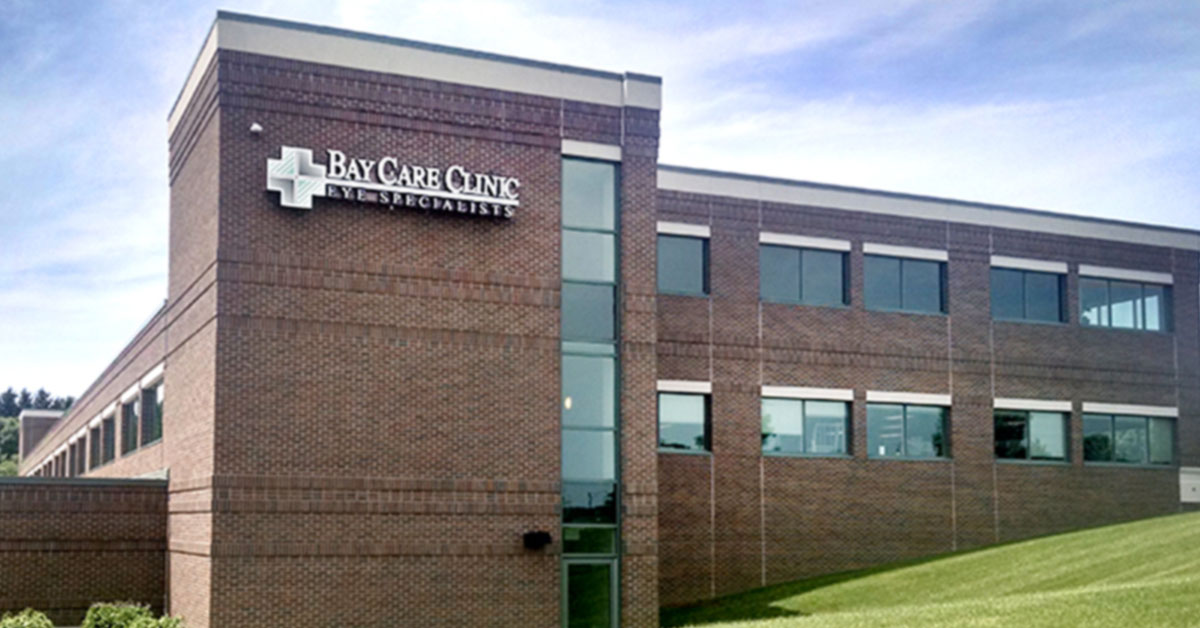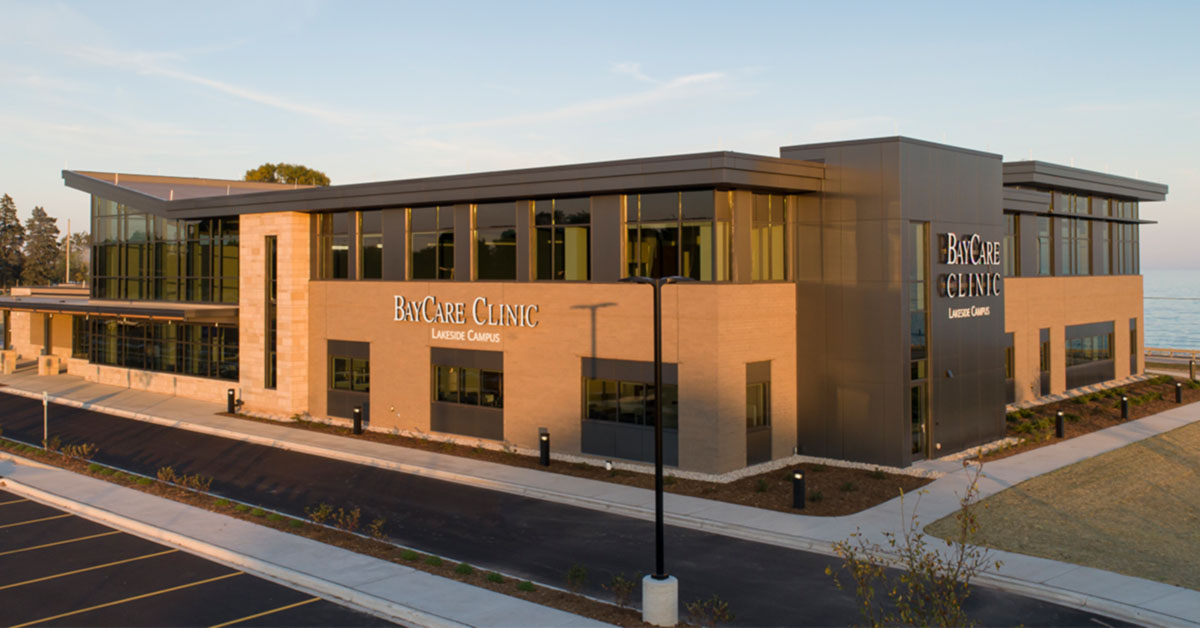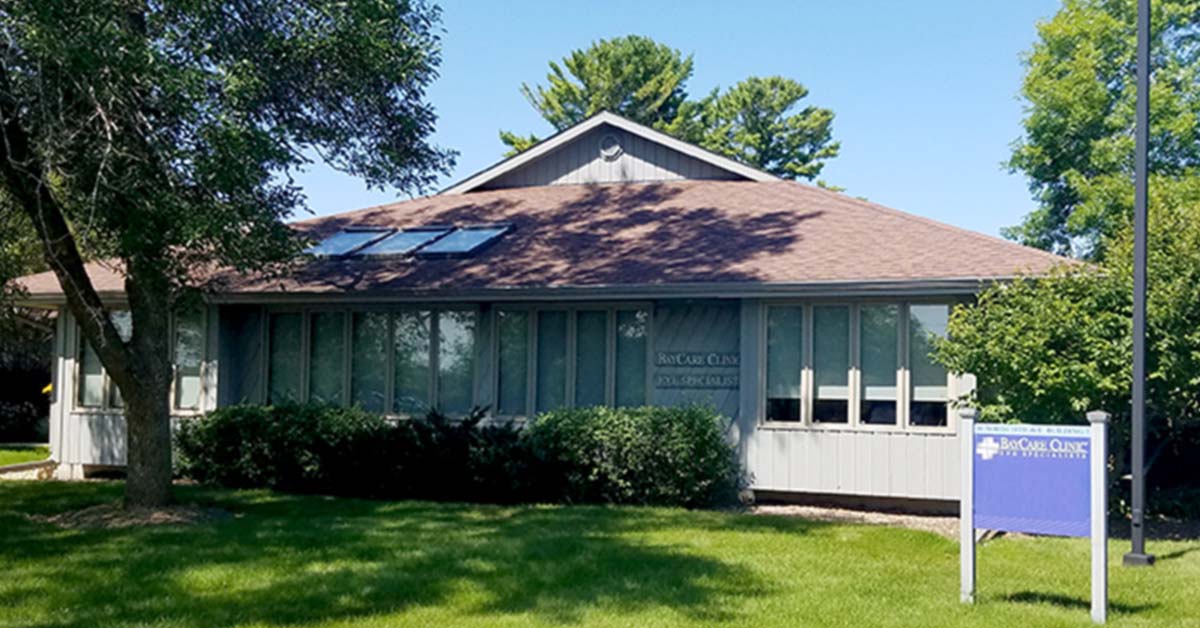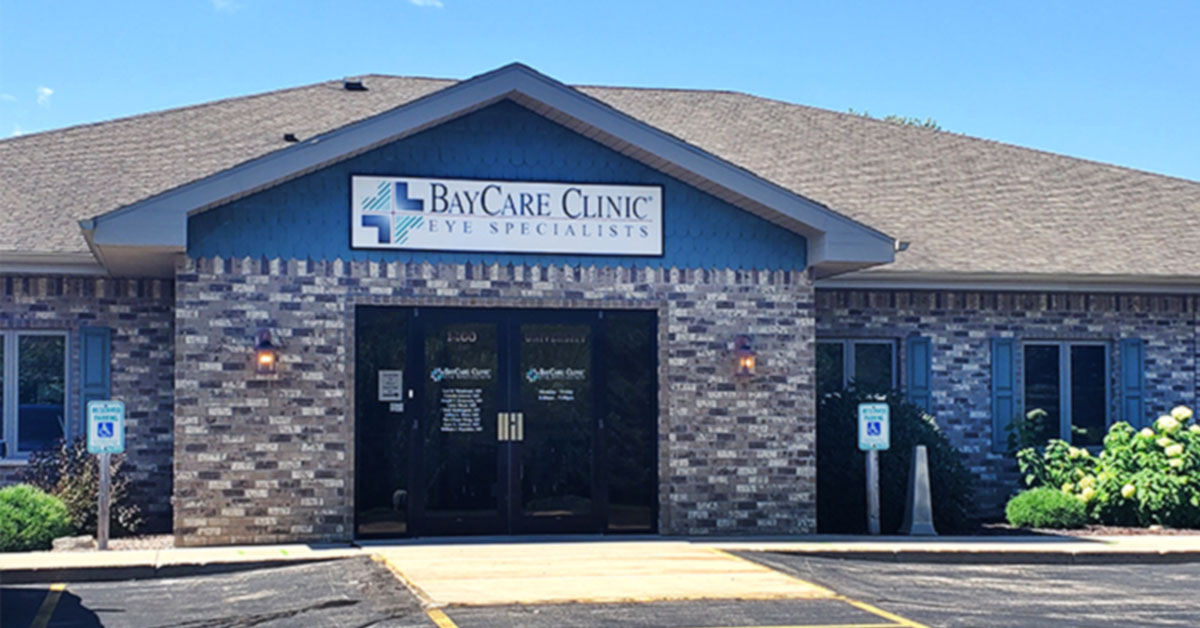Cataract
Eye Specialists
Cataract surgery is a quick and routine outpatient procedure.
Cataract surgery restores clear vision. BayCare Clinic Eye Specialists offers premium and standard intraocular lens implants to resolve issues caused by cataracts.
What are cataracts?
Cataracts occur when the clear, transparent lens inside the eye becomes clouded, causing blurred vision.
What are symptoms of cataracts?
These symptoms may indicate a cataract has developed:
- Clouded, blurred or fogged vision
- High sensitivity to light and glare
- Difficulty seeing at night
- Seeing halos around lights
- Colors appear dull or muted
- Glasses no longer seem effective
- Double vision
Are you a candidate for cataract surgery?
Who gets cataracts?
Older adults most often develop cataracts. This is a normal part of aging and cannot be prevented. Cataracts also can develop in young people, even infants, because of genetic issues, disease, eye injury or long-term use of steroid medications.
How are cataracts treated?
Surgery to remove cataracts is the only treatment option.
Cataract surgery is a common and effective procedure. The clouded lens is removed and replaced with a clear intraocular lens. The procedure restores clear vision. However, glasses or contact lenses still may be needed to correct nearsightedness or farsightedness that was present before surgery.
Cataract surgery is an outpatient procedure. It typically takes about 24 hours, with surgery and a brief recovery period on one day and a follow-up visit on the next day. Most people who have cataract surgery can return to most daily activities on the day after surgery.
Why have cataract surgery?
Left untreated, a cataract can cause blindness or glaucoma, a serious eye disease that is the world’s second-leading cause of blindness. Glaucoma causes irreversible damage to the optic nerve. There is no cure, but surgery and medication can stop the progression of vision loss.
When should cataract surgery be done?
Most people choose to have cataract surgery as soon as clouded vision caused by cataracts begins interfering with quality of life, adversely affecting the ability to drive, read or do other daily tasks.
However, cataract surgery can be delayed for months or years if desired. Glasses and contact lenses can help people with cataracts until surgery takes place.
What is an intraocular lens?
An intraocular lens, or IOL, is a clear artificial lens that's implanted during cataract surgery. It replaces a clouded lens and provides clearer vision.
Do I have a choice of intraocular lens implants?
Yes. People having cataract surgery can choose a standard IOL or an advanced IOL with technology that will correct for other vision problems. Those who choose advanced IOL lenses may not need glasses after their cataract surgery.
What are the types of IOL implants?
- Standard: A standard IOL, also known as a monofocal lens, corrects one range of vision. People who choose to correct nearsightedness will still need glasses for distance vision. People who choose to correct farsightedness will still need glasses for reading or working on a computer. People with astigmatism may still need to wear glasses for distance and near vision.
- Toric: A toric IOL corrects astigmatism, a common condition in which inconsistent curvature of the eye causes blurred vision. Toric lenses also are monofocal, so they also correct only nearsightedness or farsightedness, but not both.
- Multifocal: A multifocal IOL corrects vision at multiple points of focus, near and far. It also corrects presbyopia, a common loss of up-close focus in older adults. People who don’t want to wear glasses after cataract surgery often choose multifocal lenses.
I don’t like eye drops. Can I have cataract surgery without them?
Yes. We offer dropless cataract surgery, which typically does not require the use of antibiotic and anti-inflammatory eye drops in the weeks following surgery. (In the event of complications, the use of eye drops still may be required.)
The benefits of dropless cataract surgery include:
- Less corneal toxicity. Simply put, easier on the surgically repaired eye.
- Less risk of infection if instructions on using eye drops aren’t followed or if proper hygiene is lacking.
- Less confusing for patients on which eye drops to use, and when.
- Less expense to the patient, with fewer eye drops.
Dropless cataract surgery is not suitable for all patients. A consultation with one of our specialists will help determine an individual treatment plan for cataract surgery.
I have cataracts and glaucoma. Can they be treated at the same time?
Yes. People who have cataracts and mild to moderate glaucoma may benefit from surgery to treat both conditions at the same time.
What does cataract and glaucoma surgery involve?
The same incision used for cataract surgery can be used for micro-invasive glaucoma surgery, or MIGS.
Micro-invasive glaucoma surgery reduces pressure inside the eye by improving the natural flow of fluid inside the eye. People who have MIGS surgery recover faster with a reduced risk of infection. MIGS surgery also preserves eye tissue and leaves open future treatment options that could help maintain long-term vision.
Micro-invasive glaucoma surgery is a promising approach for people whose glaucoma isn't severe enough to require trabeculectomy (surgery to create a new path for fluid inside the eye to be drained), but for whom eye drops aren't effective.
Cataract Optimization
Dr. Kimberly Schauland offers cataract optimization to patients – evaluating and treating the ocular surface for conditions that can impact the outcome of cataract surgery.
I don’t have cataracts but I’m not seeing clearly. Are there treatment options?
Yes. Refractive lens exchange surgery is a procedure similar to cataract surgery. The eye’s natural lens is replaced with a clear artificial lens implant. The surgery eliminates the need for glasses or contacts, correcting extreme nearsightedness or farsightedness.



